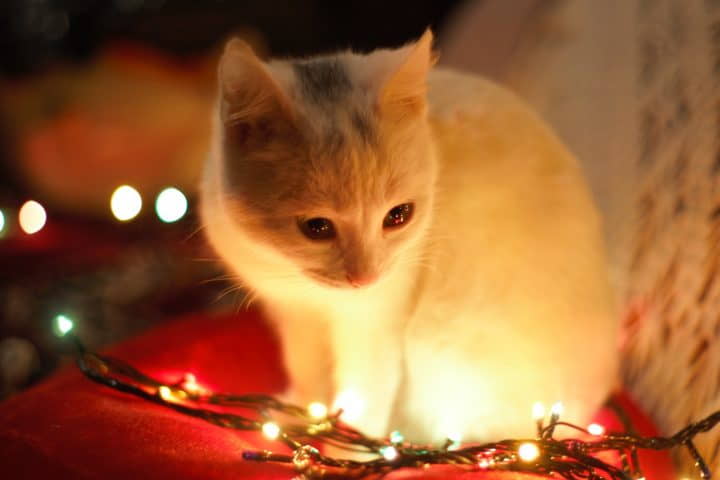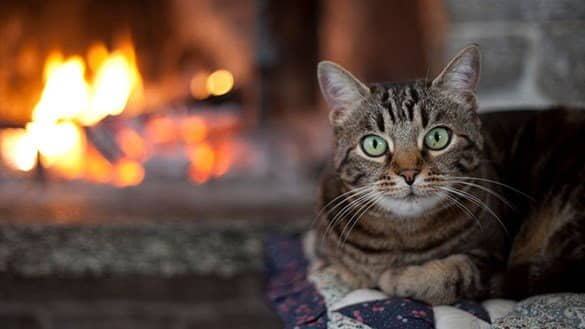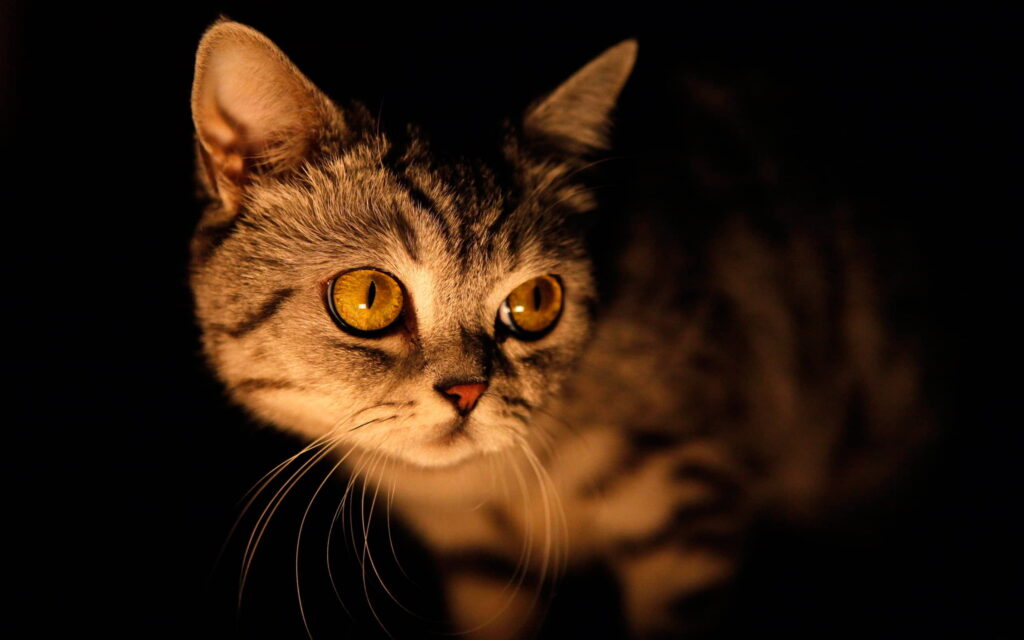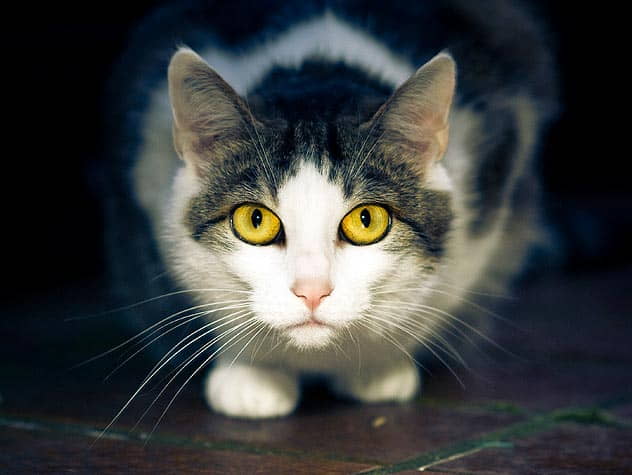Jacque Lynn Schultz, C.P.D.T., Companion Animal Programs Adviser. National Outreach
Certain cats believe that nighttime is the right time for making merry. Whether it’s a rousing game of Hop on Pop or the feline equivalent of the Hallelujah Chorus, nighttime escapades can turn a cat keeper’s sunny disposition cloudy within a few sleep-deprived nights.

In the wild, cats are most active at dawn and dusk – the majority of opportune times for hunting birds and rodents, respectively. To maintain the energy needed to successfully stalk and pounce, the average cat sleeps approximately eighteen hours a day by taking multiple catnaps. With their cats’ inherent need for so much sleep, why do so many humans find themselves an unwilling audience to feline nocturnes?
Youthful Energy
When it comes to excessive nocturnal activity, single kittens and feline adolescents are the worst offenders. The youngsters are bursting with energy and an abundant desire to engage in play. They are easily set in motion – and predatory perform – by the smallest twitch, such as a toe wiggling under a light blanket. Some sleepers have even been awakened by a kitten batting at their eyelids during the rapid eye movement stage of sleep!
If this is you, don’t despair. Engaging young felines in interactive play an hour or so before bedtime can tire them out. The geriatric cat presents more of a challenge. Providing a late snack can also buy you some peace, as can making the bedroom as dark as possible, since cats cannot see in total darkness. They are quite adept at getting around in low light, however.

The extremely playful cat may need to retire to her own playroom at the other end of the home. Here, she can expend her energies knocking around ping-pong balls or dangling toys to her heart’s content without disturbing her human companion. This nighttime isolation is usually only necessary until the cat matures. For working households, the addition of a second young cat with a similar activity level can be a godsend. The two felines will become fast friends while stalking and pouncing on each other as the humans go about their business.
Who’s in Charge Here?
At quarter to five, you feel a light tap on your cheek; at ten to five, a more insistent tap. By 5 a.m., the tap is replaced by way of a head bump, a furry body wipe to the face and an impatient screech near your ear. At this juncture, how many cat caretakers have bartered for an extra hour or two of sleep by getting up and filling the food bowl? Unfortunately, the cat has now been richly rewarded for the behavior, and rewarded behaviors become fixed behaviors. Grisabella offers trained you to do her bidding. But you can change these behaviors with time and patience. Assuming you feed your cat the appropriate amount of food to fulfill her daily nutritional requirements, when the cat comes tapping, turn over and ignore her. When she ups the ante, pull the covers over your head or play ‘possum. No matter how insistent she becomes, do not get up and feed her or you will be putty in her paws. Unrewarded behaviors will eventually disappear.

Moonlight Serenade
Nocturnal arias come from two quarters – estrous females and geriatric felines. The case of the hormonally charged female vocalizing for suitors is simple to solve: spay her! What cat can pass up swatting and leaping at a feather wand or fishing pole toy? If your senior feline begins to keep you up nights, a trip to the veterinarian is in order. Elderly cats may appear more restless at night for many reasons. As mammals age, their sleep-wake cycles change. As some senses dim, others become hypersensitive. Their ability to handle environmental changes lessen, and they become more easily stressed. Illnesses, such as hyperthyroidism, can also be responsible for excessive vocalizations. In most cases, the specific reason for vocalizations in your cat can be determined through careful history taking and medical testing. By making a few changes, you will soon find yourself nodding off to the throaty purr of a contented cat.

Wondering about How Do I Stop My Cat From Scratching My Furniture? Check it out on our latest post!
